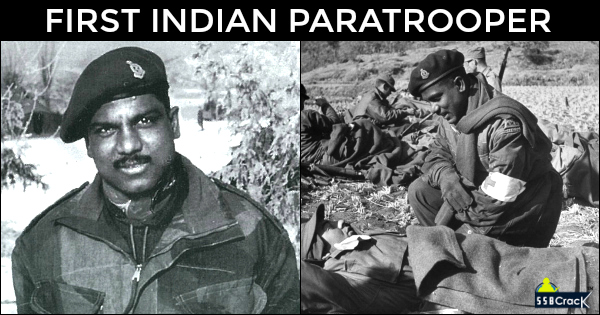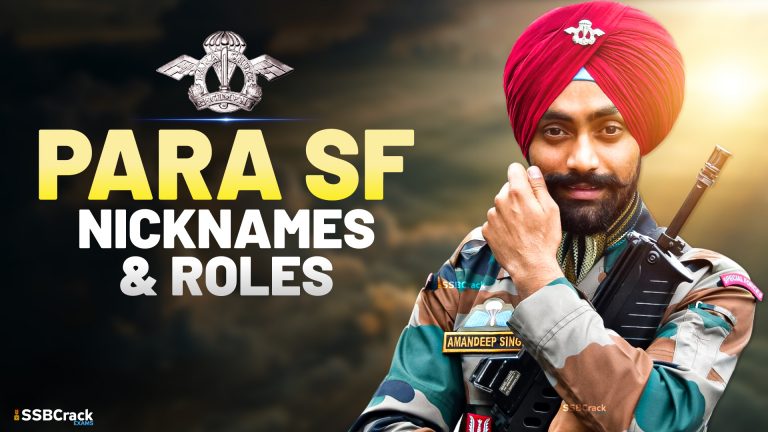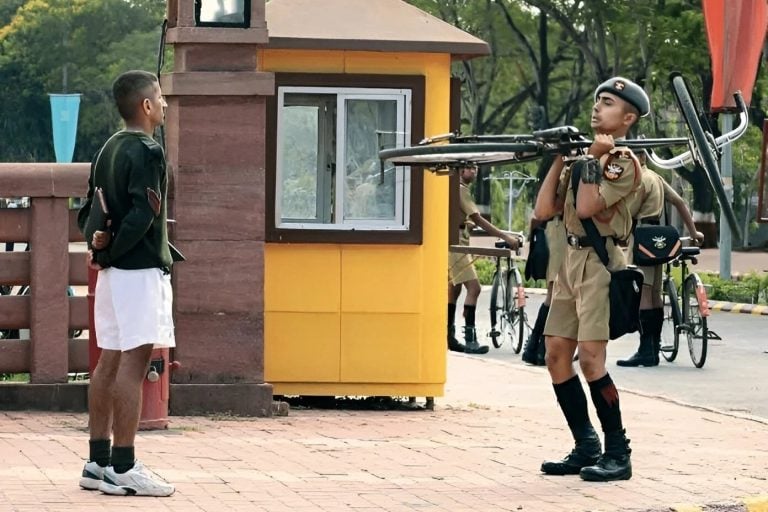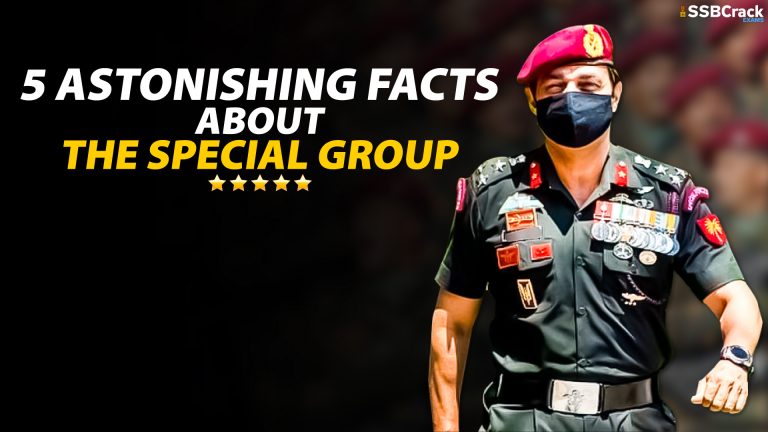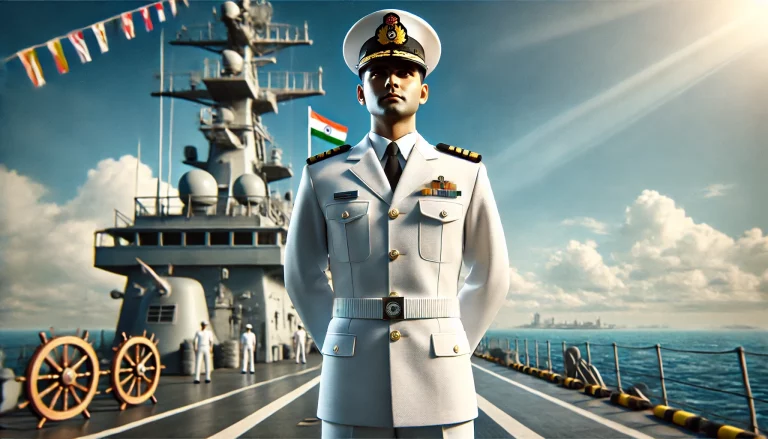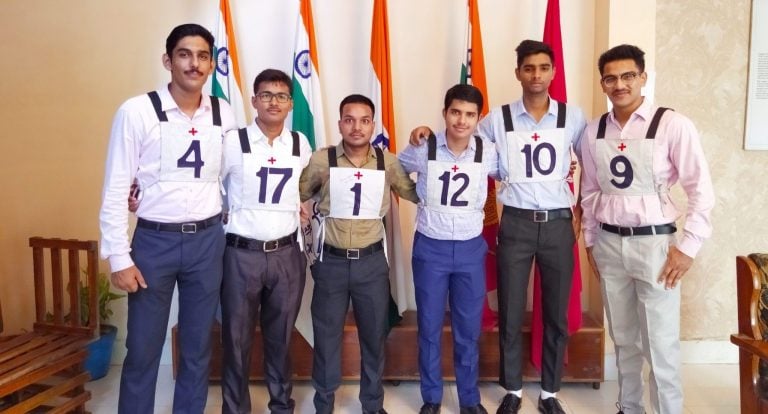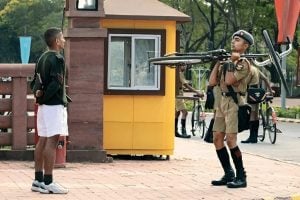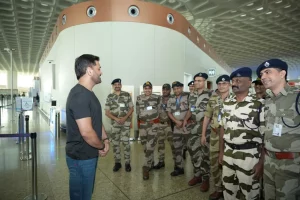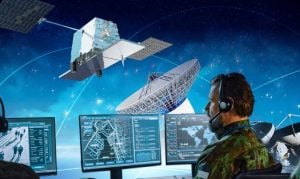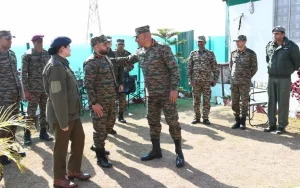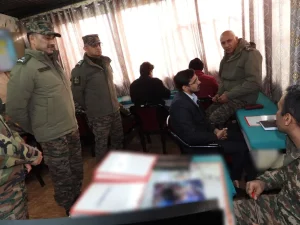The first Indian airborne formation was the 50th Parachute Brigade raised on 29 October 1941, consisting of 151 British, 152 Indian, and 153 Gurkha parachute battalions alongside other support units.
Lt. (later Col.) AG Rangaraj, MVC, of the Indian Medical Service and RMO of the 152 Indian Para battalion, became the first Indian along with Havildar Major Mathura Singh to make a parachute descent. In 1942-43, the formation saw limited action at Nara against Pathan tribals in the North-West Frontier Province and conducted some intelligence-gathering missions in Burma, utilizing their somewhat limited airborne capabilities. Later, in March 1944, less the British battalion (which was transferred to Britain and renamed the 156th Para battalion and formed part of the 4th Parachute Brigade of the 1st Airborne Division), the brigade, less 154 Gurkha Para battalion, saw extensive action at Sangshak and later in the Imphal Plains on the Burmese border against two reinforced Japanese divisions. 154 Gurkha Para battalion had not completed its air training, so stayed back to attain the airborne status.
60 Parachute Field Ambulance was raised as 60 Indian Field Ambulance on 10th August 1942 in Secunderabad and saw action in Burma as a part of 2 Indian Air Borne Division. The performance of the Unit in these operations led to its selection for para duties. It was converted to Para Field Ambulance in 1945. In August 1946 a detachment ADS participated in Operation-HATYA, as a first Indian Air Borne task, to help flood victims in Hatya, an island in the Bay of Bengal. SIXTY also served with distinction during the Kashmir operations of 1948-49, where it raised and maintained the famous ‘CARIAPPA HOSPITAL’.

SIXTY became part of 50 (1) Para Brigade in 1950. It was sent to Korea to join the United Nations Forces in November,1950 as a part of the Commonwealth Division. SIXTY took part in a difficult Air Borne operation, ‘Tomhawak with 187 RCF of United States Army at Munsani in Korea. Two Maha Vir Chakras, six Vir Chakras, One Bar to Vir Chakra and 25 Mention-in-Despatches were bestowed upon the Unit in Korea. Lt Col. A.G. Rangaraj MVC who commanded the Unit in Korea is also the First Indian Paratrooper.
Dr. Rajendra Prasad presented the Presidential Trophy to SIXTY on 10 March 1955 in recognition of noble work done in Korean Campaign.
In 1961 the SIXTY took part in Operation VIJAY in Goa and in the Indo-Pak conflict of 1965.
Indian army doctor (AMC: 1941), he was awarded the Maha Vir Chakra (1951) for bravery in Korea, as part of the UN Peace Keeping Force. A specialist on smallpox, he was later a Senior Adviser to WHO in Afghanistan (1969) and the Gulf (1978).
Also Read:
- Dhoni Extends Support for Vande Mataram CISF Coastal Cyclothon–2026, Promoting National Unity and Fitness
- France Selects Thales Alenia Space for Military Radar Imaging Program DESIR
- Army Commander Reviews Operational Preparedness in Bani–Macchedi Sector
- Lt Gen Pratik Sharma Reviews Operational Preparedness in North Kashmir
- Heavy Fighting Erupts on Kuday Island as Al-Shabaab Attacks Somali Military Base
